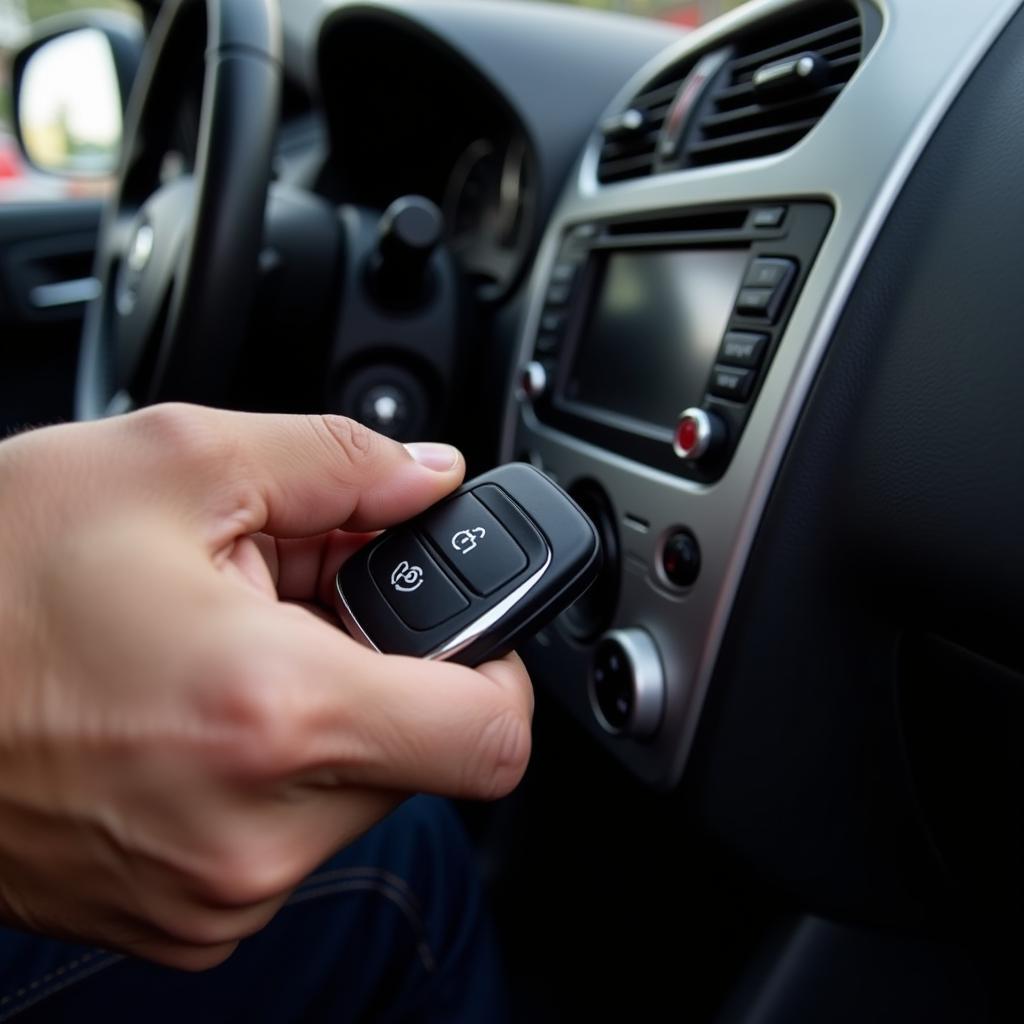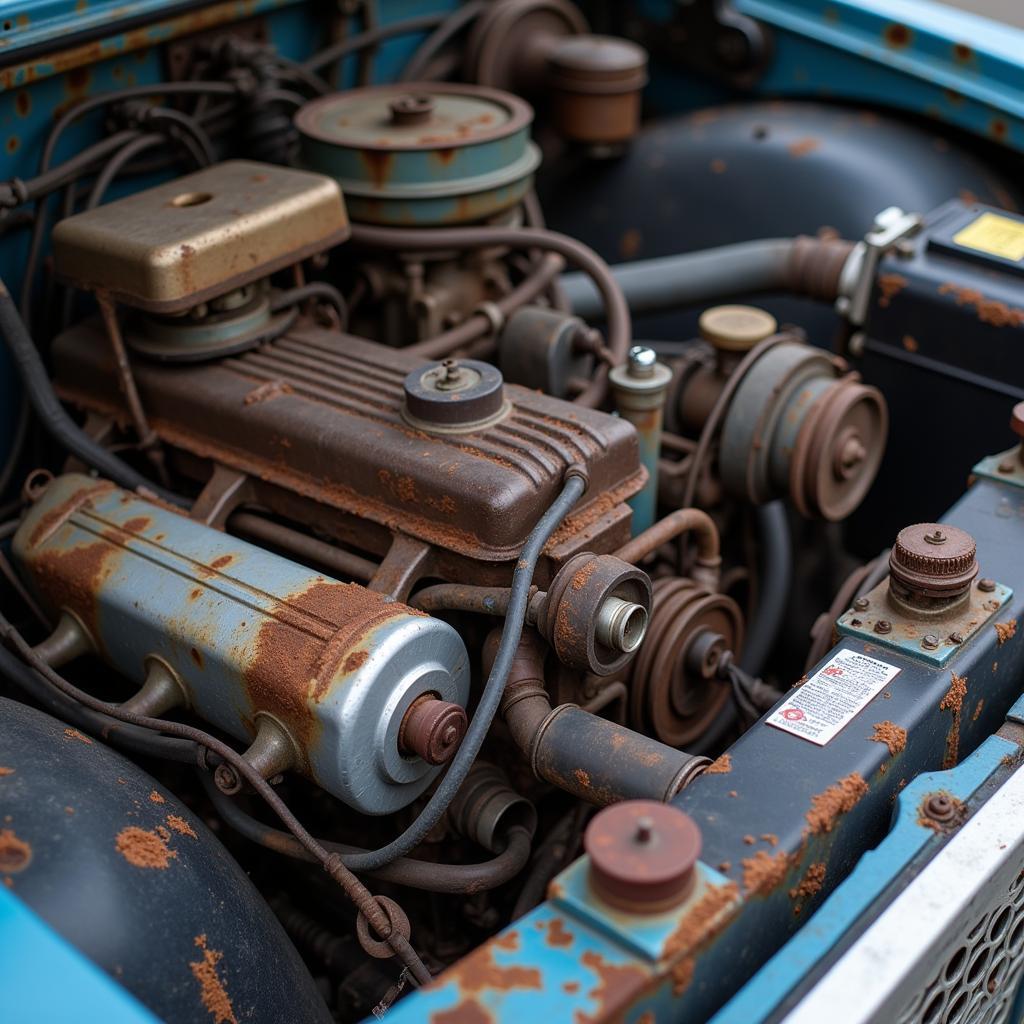It’s a hot summer day, and you’re driving down the road when suddenly your car’s temperature gauge starts to climb. You pull over to the side of the road, and you’re worried. Your car is overheating, and you don’t know what to do.
This is a common problem that many car owners face, and it can be caused by a variety of factors. If you’re wondering why your car keeps overheating, here’s a comprehensive guide to help you understand the causes, and how to address them.
Common Causes of Car Overheating
Overheating can be a symptom of various underlying issues, and it’s crucial to pinpoint the root cause for proper repair. Here are some of the most common reasons why your car might be overheating:
1. Low Coolant Levels
The most common reason for a car to overheat is simply a lack of coolant. Coolant is a vital fluid that circulates through the engine, absorbing heat and carrying it away to the radiator. When the coolant level is low, the engine doesn’t have enough fluid to effectively dissipate heat, leading to overheating.
“If you’re experiencing overheating, the first thing to check is the coolant level,” says John Smith, a seasoned automotive mechanic with over 20 years of experience. “Ensure you have the right type of coolant for your vehicle, and top it off if needed.”
2. Faulty Radiator
The radiator is responsible for transferring heat from the coolant to the air, cooling the engine. If the radiator is damaged, clogged, or leaking, it won’t be able to cool the coolant effectively, leading to overheating.
3. Clogged Radiator Hoses
Radiator hoses transport coolant between the radiator, engine, and other components. If these hoses become clogged or damaged, they can restrict the flow of coolant, causing overheating.
4. Faulty Water Pump
The water pump is responsible for circulating coolant throughout the engine. If the water pump fails, it can stop the coolant from circulating, causing the engine to overheat.
“The water pump is a vital component in the cooling system,” explains Mary Jones, a certified automotive technician. “A faulty pump can lead to overheating and other problems, so it’s essential to replace it promptly if you suspect any issues.”
5. Thermostat Issues
The thermostat controls the flow of coolant between the radiator and the engine. If the thermostat is stuck in the closed position, the coolant won’t flow to the radiator, leading to overheating.
6. Engine Problems
In some cases, overheating can be caused by problems within the engine itself, such as a blown head gasket or a cracked cylinder head. These issues can allow coolant to mix with the engine oil, resulting in overheating and other severe problems.
“Overheating can be a sign of a more serious engine issue,” cautions Robert Davis, an experienced automotive engineer. “If you suspect engine problems, it’s best to get a professional diagnosis as soon as possible.”
How to Deal With Overheating:
-
Pull over immediately: The first step is to pull over to a safe location. This will prevent further damage to your engine.
-
Turn off the engine: Turn off your engine and let it cool down for at least 30 minutes. This will give the engine time to dissipate heat.
-
Check the coolant level: Once the engine has cooled down, check the coolant level. If the coolant level is low, add coolant.
-
Inspect the radiator: Look for any signs of damage or leaks in the radiator.
-
Check the radiator hoses: Make sure the radiator hoses are not clogged or damaged.
-
Get professional assistance: If you can’t find the cause of the overheating, or if you’re not comfortable making repairs yourself, take your car to a qualified mechanic.
What to Do If Your Car Overheats:
- Avoid driving your car: Don’t drive your car if it’s overheating. Overheating can cause serious damage to your engine.
- Seek professional help: Contact a trusted mechanic or roadside assistance service. They’ll be able to assess the issue and provide a solution.
- Address the problem promptly: Overheating is a serious problem, so it’s essential to address it promptly. Don’t ignore the issue, as it could lead to more serious problems in the future.
FAQs about Car Overheating
Q: Can overheating cause permanent damage to my car’s engine?
A: Yes, overheating can cause significant damage to your engine, such as warping the cylinder head, damaging the head gasket, or even seizing the engine.
Q: What is the difference between a radiator and a coolant reservoir?
A: The radiator is where the actual cooling process occurs, while the coolant reservoir acts as a storage tank and allows for expansion and contraction of the coolant due to temperature changes.
Q: Can I use regular water instead of coolant in my car’s cooling system?
A: It’s not advisable to use regular water as coolant. Water can freeze in cold temperatures and cause damage to the cooling system, and it doesn’t have the same corrosion-inhibiting properties as coolant.
Q: How often should I check my coolant level?
A: You should check your coolant level at least once a month or more frequently during hot weather or long trips.
Q: What are the symptoms of a faulty water pump?
A: A faulty water pump can cause overheating, a whining noise coming from the engine, a leak under the car, or a build-up of pressure in the cooling system.
Contact Autotippro for Help:
Autotippro is a trusted auto repair shop with expert technicians ready to assist you with your car’s overheating issues.
Contact us today for a free consultation:
Phone: +1 (641) 206-8880
Office: 500 N St Mary’s St, San Antonio, TX 78205, United States
Don’t let your car overheat! Contact AutoTipPro today for a professional diagnosis and repair.






Leave a Reply